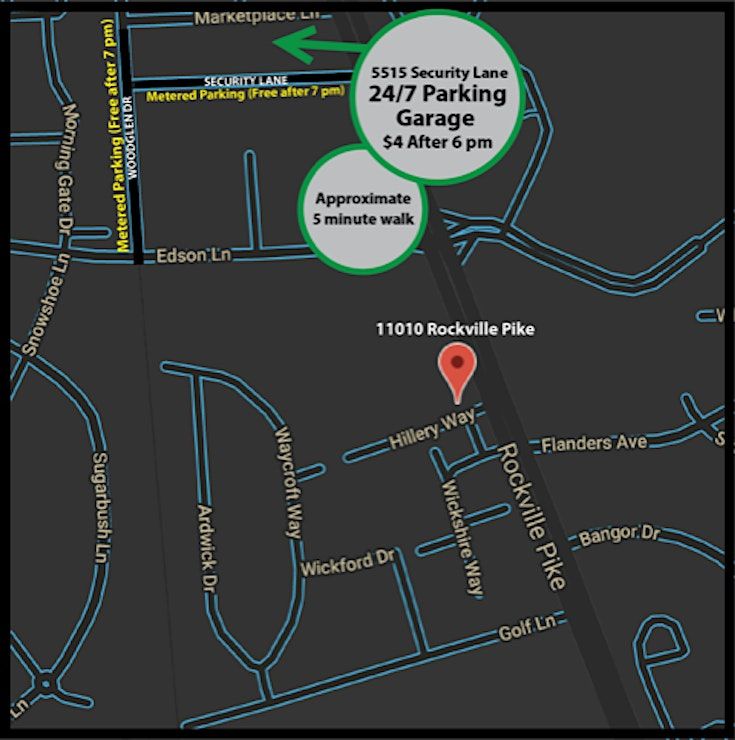
Advertisement
Come hang out at Hank Dietle's Tavern on December 17th at 8:00 PM for a live performance by McKinley James with Mark Wenner!About this Event
The first thing you notice about ’ extraordinary new EP Still Standing By is the serious mix of Motown soul and blues-based guitar playing. It doesn’t sound like the type of “blues” you get from traditional purveyors of the genre, but instead from a guitarist who understands chord theory so well you could swear you’re hearing a horn section sometimes. That’s because he leads a duo, and while guitar stores reverberate with licks from ham-fisted modern bluesmen when they don’t know shuffle from shinola, McKinley would walk into that guitar store, plug in, and summon the spirits of his own idols, nearly forgotten pioneers like Otis Rush and Johnny “Guitar” Watson. Still Standing By is his third EP, all of them fine listens, and here’s the thing… McKinley is 19 years old. Already a veteran before he’s old enough to drink.
Still Standing By is a six-song feast. Produced by The Black Keys’ Dan Auerbach at his Easy Eye Sound studios in Nashville, it’s soul music with a dash of blues growl, all written by McKinley himself (with Patrick Sweany on “Whatever It Takes [For Love]). “Stuck in the Shadows” sets the tone for the disc. “My early influences, there were no horns,” he says, “and so especially with a trio – I love the sound of horns, but you have to fill in the space without them.” In this way he channels the great Chuck Berry, whose patented double stops were written to take the place of horns he didn’t have either.
“Clear Skies” is Motown and Rank & File put together with a visit from Tom Petty’s ghost, if you can imagine that. It’s also actually not unlike what British legends The Jam sounded like as they transitioned from rock to R&B. “Whatever it Takes” follows the same lead and dare one say, shows the direction Hendrix might have gone, had he been able to change his musical setup and grow gracefully old like Clapton.
McKinley’s favorite is “Spare Change Blues.” Of it, he says, “It actually revolves around the guitar I play now, an ES-335, because I really wanted to buy that guitar, and it took me about two or three months to pay for it. That’s when I got the idea for “Spare Change Blues”, because I couldn’t be like, ‘Here you go, here’s all the money! I’m buying the guitar right now.’ I had to work up to it.”
Born and raised in Webster, New York, not far from Rochester, James moved to Nashville with his family not even five years ago. They have always been a musical bunch. His father, former Los Straitjacket and J.D. McPherson drummer Jason Smay, is the other half of the band. He’s a living example of why every guitarist should start with keyboard; because he learned so much about theory and craft, when he finally moved over the foundation was laid for him to far surpass your average guitar hero, playing simple bar chords punctuated with bits of wheedly wee.
He got his feet wet in town fairly quickly, playing the Family Wash and Basement regularly in his first few years, where he and his band grew a steady crowd before shutdown in 2020. His unparalleled musical journey has taken him from the cover art of Eric Church’s critically acclaimed ‘Mr. Misunderstood’ to stages across America and Europe, even to Nashville’s Bridgestone Arena where he performed the album’s title track with Church for a sold-out hometown crowd.
Already a seasoned road dog who missed his own high school graduation for a gig, things are now heating back up in the wake of the pandemic, as he and his band gear up for the type of touring young men are built for. James is incandescently stoked about the July 23rd release of Still Standing By, and given the music on it, he should be. So where does he see himself a year from now? “On the road, taking this thing even further,” he enthuses. “Everyone’s just so happy, and the band is ready to get out there. We’re just ready to go and ride it out. And I hope people dig the record.” Odds are they will.
The Nighthawks was an idea in Mark Wenner's brain long before he was able to implement it. The musical product of pre-1958 radio in Washington, D.C., he did not know there were rules against mixing blues, R&B, honky-tonk country, doo-wop, gospel and rockabilly into one delicious stew.In 1972, Mark, then 23, returned to his hometown after a New York City band apprenticeship eager to start a real, work-every-night band based on American roots music. He found a receptive local scene. Washington has long been a musical melting-pot of the kind that made Memphis the source point for the evolution of American music in the second half of the 20th century. It just never had a Stax or Sun record label to tell the world. As the city exploded with an influx of people from all the surrounding states during the Great Depression and World War II, Washington became a hotbed of musical cross-fertilization. When Bill Haley first brought his wacky Pennsylvania mix of hillbilly music and rhythm and blues to D.C. in 1952, people got it. And white kids like Mark found the Howard Theater – now recently restored and part of the historic top tier of the Chitlin' Circuit that included Baltimore’s Royal, Chicago’s Regal and New York’s Apollo – just a 25-cent bus ride away from the suburbs.

Advertisement
Event Venue & Nearby Stays
Hank Dietle's Tavern, 11010 Rockville Pike, Rockville, United States
Tickets
USD 23.18
Concerts, fests, parties, meetups - all the happenings, one place.
